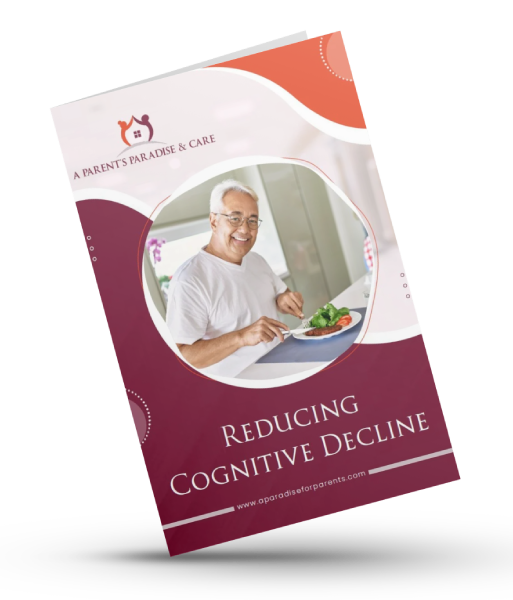There may come a time when your elderly loved one needs to move to a senior care facility due to a number of factors, such as a decline in physical and mental health. There are several options to pick from – assisted living, memory care and a combination of the two. The combination means there are memory care resources within an assisted living home or facility. In this article we will explain what is memory care in assisted living. We will also cover the difference between assisted living and memory care. And we will give you some tips for when to move from assisted living to memory care.
Many seniors and their families want them to be cared for in a home environment. Many of these seniors will also need a home or facility that specializes in Memory care. One of our homes in Surprise, AZ is very good with memory care residents. That’s why we’re a good answer for the what is memory care in assisted living question. You don’t have to ask when to move from assisted living to memory care because we can offer all the services in one place.
Assisted living communities are one of the fastest growing senior care options available today. But the question is, are assisted living facilities capable of handling seniors with Alzheimer’s diseases or dementia? The answer would depend on the assisted living facility itself.
A lot of seniors residing in assisted living facilities have some degree of dementia. The problem is that most of these residents are not receiving the treatment they need since they’re not properly diagnosed. According to the Alzheimer’s Association’s 2016 Alzheimer’s Facts and Figures, 42% of seniors in assisted living facilities have some form of cognitive impairment or dementia. This number is constantly increasing. However, among all the assisted living facilities in the US, only 58% offer a memory care program.
It is important to ensure that you choose a senior care facility that can cater to the ever-changing needs of your loved one. Especially so if you’re looking for long-term care options. The first step in doing so is to understand the role of assisted living facilities – what they offer and how they differ from other senior living communities.
What is Memory Care in Assisted Living?
Assisted living is a type of senior care that offers assistance with the activities of daily living. These include, but are not limited to:
- Eating
- Bathing
- Grooming
- Toileting
- Medication management (taking medications on time)
- Laundry
- Activities
Assisted living primarily attends to seniors’ unscheduled needs for assistance, but they are not required to offer a 24-hour, on-site medical assistance.
Constant medical care becomes more expensive and is the responsibility of skilled nursing facilities. However, many assisted living homes and facilities have resources to care for people with memory care issues as well. For those facilities that have a separate memory care unit, it’s best to talk to the staff and medical professionals about when to move from assisted living to memory care.
When to Move from Assisted Living to Memory Care
Due to the increasing number of seniors diagnosed with dementia, more and more assisted living facilities provide memory care for their residents. However, the memory care services offered by facilities vary from one another. For instance, Facility A may only provide assistance for seniors in the early stages of dementia, while Facility B may cater to late-stage dementia patients. Before choosing a facility, it is important to visit the assisted living facilities on your list and ask them a lot of questions.
There are assisted living facilities that are primarily made to house seniors with Alzheimer’s disease. While most facilities do not solely focus on taking care of dementia patients, they are fully equipped to handle the needs of seniors with dementia and Alzheimer’s disease.
Assisted living facilities for people with Alzheimer’s disease are commonly known as Special Care Units (SCUs). SCUs are manned by professionals who are trained to attend to seniors who have dementia. Special Care Units are different from regular assisted living facilities. SCUs are specifically designed to be safe and comfortable for dementia patients. They also have specialized programs that help improve cognitive function.
A nice feature of our late stage memory care home is that we only have a maximum of 10 residents at a time, with a staff of 2 on duty during the day (1 at night when everyone is sleeping). The low ratio means our residents can have individualized attention.
Memory Care for Seniors with Late-Stage Alzheimer’s Disease
Most assisted living facilities only accept seniors in earlier stages of Alzheimer’s or dementia since they do not have an on-site and full-time medical team. Our homes specialize in all stages. Since the symptoms of dementia and Alzheimer’s worsen over time, assisted living facilities would recommend the senior be moved to a skilled nursing facility or a nursing home.
A Paradise for Parents is one of the few assisted living facilities that are dedicated to serving residents in the early, middle, and late stage of Alzheimer’s or dementia. All of our four homes work well with memory care residents and our home on 164th Lane focuses on helping seniors with late-stage Alzheimer’s.
How to Choose The Right Memory Care Facility?
The best way to choose the right assisted living for your elderly loved one is to visit these facilities. It’s better to visit multiple facilities if you have more than one special care unit in your area. By doing so, you can compare the atmosphere and the services offered in each facility. Here is a list of the factors you may want to think about in choosing the best facility for your loved one:
- Compassionate personnel
- How the staff handles wandering and difficult behaviors
- Types of activities that are tailored specifically for dementia and Alzheimer’s patients
- A well-structured program for residents
- Activities that reflect the senior’s interests and personality
- The appearance of the facility’s residents – are they healthy looking? Do they look happy?
- Types of outdoor activities and if there are safe outdoor recreation areas for walking, gardening, and relaxation
- Activities that celebrate small victories by helping residents succeed at simple, familiar chores – making the bed, cleaning their room, dressing, etc.
- Complete safety devices and precautions – nonslip floors (especially in the bathroom), good lighting, motion detectors, monitoring systems, proper locks on doors and windows, etc.
- The amount of time the staff takes to acquire information regarding your loved one so they can provide the best care for him/her, taking into consideration the safety, well-being, and preferences.
Right Questions to Ask for Memory Care
Below is a list of questions regarding important factors you may not be able to notice:
- In your opinion, what is memory care in assisted living?
- How many staff or caregivers are on each shift?
- How many staff or caregivers work on holidays or weekends?
- How many seniors with Alzheimer’s and dementia live in the facility?
- How many rooms are there?
- How many residents are there?
- What happens if there are any medical emergencies? Do they have a structured plan?
- What are the different levels of care the facility offers?
- What are the different levels of care offered to dementia and Alzheimer’s patients?
- Is transportation provided for senior’s personal use?
- Is there any policy regarding oxygen tanks, wheelchairs, and other medical equipment?
- When to move from assisted living to memory care?
- Is the staff fully-equipped to perform dementia care? How do they deal with difficult situations and behaviors?
- How many patients are assigned to one caregiver?
- Will seniors with incontinence problems allowed?
- Can a facility kick out a patient due to anger, aggression, and overall bad behavior?
- Are seniors allowed to bring personal items with them?
- Are medications used to calm patients down or ‘subdue’ them?
- Will my loved one need to transfer to another senior living as their dementia or Alzheimer’s disease progress?
- How is the staff going to administer medication?
- What are the safety measures for Alzheimer’s and dementia residents?
What is Memory Care in Assisted Living at A Paradise for Parents
At A Paradise for Parents, you can be sure that your loved one will be able to receive the support they need to live their best life possible within the constraints of their condition. Your loved one can enjoy:
- Physical and mental activities tailored to their capabilities
- A sense of independence and freedom
- Healthy walking or other exercises
- A compassionate understanding of what each individual may require
If you want to know more about assisted living facilities, A Paradise for Parents staff and our resources can answer all your questions. Don’t hesitate to give us a call at (623) 295-9890 or email us at Info@aparadiseforparents.com to know more about the services we offer. You can also fill out an online form located on our homepage. We’d be happy to assist you in your search for an assisted living facility for your loved one.





